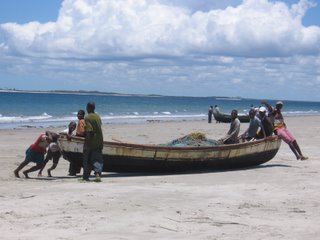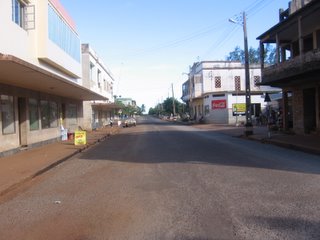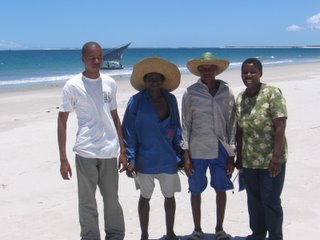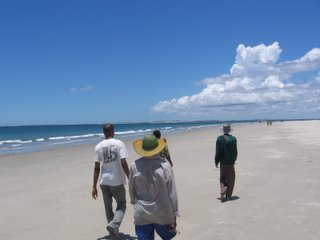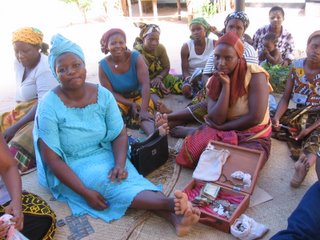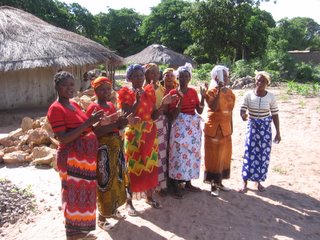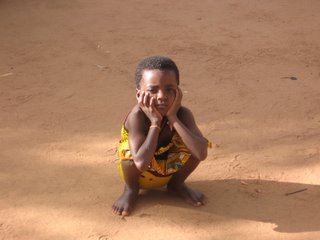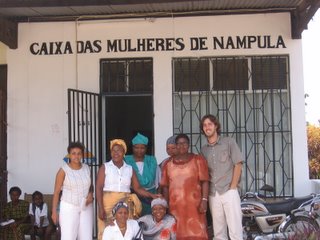Viva os
The second day with Ophavela was spent in the coastal city of
We were able to meet with the Ophavela staff working in Angoche and visit some of local credit associations. Many of the clients working in Angoche are fishermen that desperately try to make a living for themselves and provide for their families by what is yielded to them by the sea. Unfortunately, many of the fishermen are too poor to afford nice boats and fishing equipments, making it very difficult to get to the deeper waters where the really big monsters live. As a result many skim the shallower waters for small fish and crabs or paddle out to sea on tiny dug out canoes. The ones that can afford larger boats are still hampered by government regulations against using certain sizes of nets or fishing in certain areas. The problem is that the waters close to shore have been extremely over fished, forcing the government to take immediate action in order to replenish the vital fish stacks. The local fisherman, however, have difficulty seeing the long term benefits of this strategy. Their families are hungry now and they only see the policy as increasing their suffering.
We met with some local fisherman (pescadores) under the shade of Angoche’s only beachfront restaurant (which by the looks of things had not seen visitors in many a moon.) There names were Moisa Muhammed and Osaf Saliman (There is a much greater Muslim population in Nampula than back in Maputo province so we were confronted not only by a different social culture but also by a completely different set of names). They were very grateful for Ophavela and the credit association but they continuously stressed how difficult it was for them to make a living as fisherman in Angoche. They were ashamed to admit that they often had to use loan money from the group to buy fish to feed their families or to sell in the market. They admitted that a big problem for the fisherman here is that they have no means of preserving their fish so their products often spoil before they are able to be sold in the market. Since many of the members are constantly living hand to mouth they do not have many long term business development plans aside from collectively purchasing a car for the group to transport their products to the markets in Nampula. A lofty dream indeed but encouraging to see them thinking collectively.
After our interview, we said goodbye to the fisherman and they returned home to their families with the days catch: five small fish no more than three inches in length and two crabs. They just shrugged their shoulders and admitted that the sea did not give them much today and that hopefully tomorrow would be better. We then returned to town to meet with some of the woman’s associations. Many of these women had husbands who also were fisherman but were engaged in some small businesses as a means to complement the family income. Some of their activities included the production and sale of traditional beer, cakes, charcoal and coconuts. The members saw the credit association not as a means to develop their business but as a safety net for them to get through the “days of hunger.” Many of the members were extremely thankful for the opportunity to use the loan money to purchase furniture and fridges for the house, organize traditional ceremonies for weddings and funerals and pay for their children’s school fees. In communities as destitute as this I’ve discovered that development is a luxury while survival is a reality.
After our long day of trekking around the streets and the beaches of Angoche, we piled back into our Land Cruiser for the long journey back to Nampula. We did one more sweep past the sleepy streets, observing the large port and three massive factories that now lay abandoned and in ruins. Looking over my notes and pictures from the day I could not help but marvel at the people that still managed to make some sort of a living for themselves in a town that history had all but forgotten.

